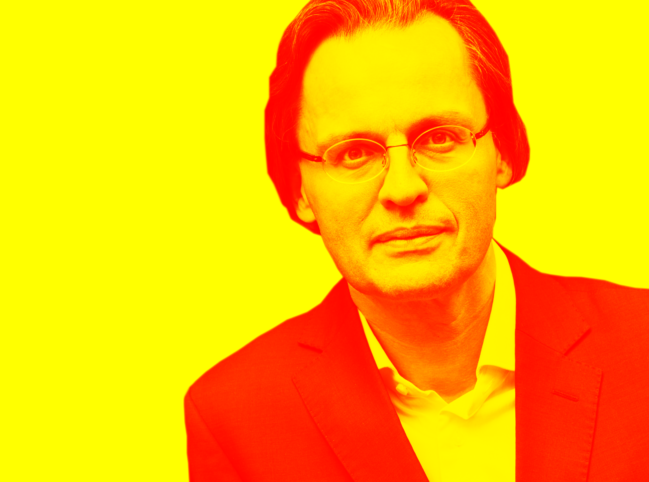“We have the problem that the trolls, the haters and the loudes determine the communication climate very strongly from the edges, although they are a small radical minority. […] The middle classes, the moderates, the lovers of the argument and the friends of nuance must reclaim the communicative arena, the public arena. The loud ones must not rule.”
“I also believe that the social center must actually relearn the capacity for conflict and confrontation. Because we have a media situation, a communication situation of networking, and what does networking mean in the end? That an incredible number of different worlds, perspectives, large and small ideologies, are constantly colliding. And what the middle class – to which I absolutely count myself and thus it is also a piece of self-criticism – has to learn the future virtue of respectful confrontation, not opportunistically ducking away, not dodging, but at the same time not entering the spiral of devaluation at the moment of confrontation. And that, I believe, is the point. It’s a kind a double movement, meaning appreciation for the other person, but possibly harsh criticism of his or her position.”
“Because we are confronted with an excess of difference, we may have lost the ability to endure that difference, to enjoy it. If you are attacked or defamed […], then the massive attack is an attempt to erase this difference: ‘He shall go.’ ‘This should become unamiguous again.’ But that can’t be. We need something which I think Schulz von Thun calls a harmony of a higher order – a very beautiful term. Not to push away differences, but to recognize and accept them. And there begins the mature discourse, the friendlier, the more empathetic discussion, despite all the differences. One which does not want to push away these differences.”
“That is the danger we face today that even those who actually advocate a language of moderation and cooling off, will be seduced. That’s why it’s so important to learn the hesitation, the general devaluation of the other – your conspiracy theorists out there: frustrated East German, hysterical feminist, naive do-gooder – all these are just labels with which we can achieve one thing immediately, the ruination of any form of willingness to talk on all sides, and at the end of the day everyone yells at each other. That is why the hesitation, the waiting, the letting things happen, the refusal in this game of generalization, are so important.
“And you can see from this – we call this the technique of pejorative generalization – this is actually from the devil, it ruins communication quite directly, in a certain sense this means to renounce the pejorative generalization if one wants to bring about a dialogue. This means to leave the bench of one’s own certainties, to consider the possiblity that the other person could be right, that he or she might have a point and to even enjoy this dance of thinking and this is a dialogue where one person makes a point, and perhaps from the interplay of cooperation and not from overpowering, from winning and winning over the other, something new third arises that one could not have alone.”
“Learning to hesitate, not to be too quick, to listen in a way that does not ask: Does what the other person says agree with what I believe anyway? But rather: In what world does what the other person says make sense? A different way of listening. First of all, ask yourself what is […] the part of an utterance to be respected? What could be said positively about the other person? Separate the person to be respected from the position that might deserve criticism. Those would be some of the principles.”
“When we come back to Donald Trump, the total confusion of fact and opinion. He started his career as a conspiracy theorist who advocated the racist conspiracy theory that Barack Obama might not be a legitimate US president because he wasn’t born in the US. And when he was asked about the fact that there’s a birth certificate and there’s a birth announcement and that it’s proven, he said: ‘That’s one opinion and I have my opinion and so there are two opinions and they’re beautiful.’ And that shows, in a nutshell, this confusion of fact and opinion. We have to try to reach agreement on facts, however difficult that may be in individual cases. In the world of opinions, of interpretations, or of assigning meanings, there is a tremendous variety.”
WSR 2 Wissen, 12.4.2020, Excerpt from the podcast: «Dialog statt Hetze – Eine neue gesellschaftliche Kommunikation», Ralf Caspary in conversation with Bernhard Pörksen
Credits
Photo: Peter-Andreas Hassiepen/ re:publica
Post created by
Laura Hilti, Kunstverein Schichtwechsel


